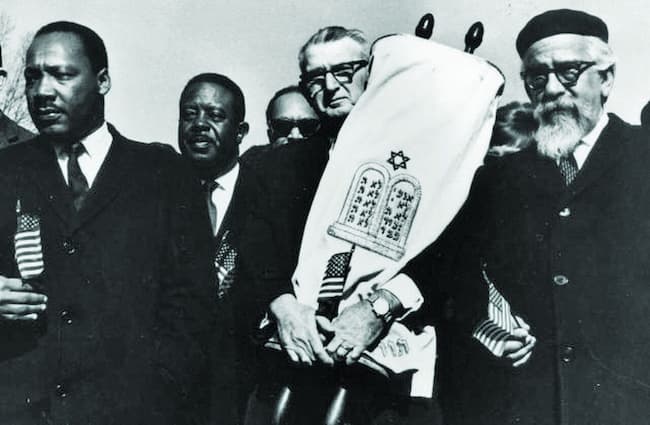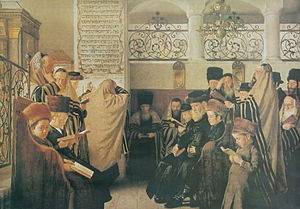Hidden Treasures of Rabbi Chelouche
The days of the Sefirah commemorate a period of strife and divisiveness. The Bar Kokhva revolt (132-135) came at the heels of the Rebellion of the Diaspora (112-115) and the Great Revolt (67-70), which culminated with the destruction of the Temple. The Temple would probably not have destroyed by the Romans, who deeply feared all deities, if not for the stubbornness of the defenders of Jerusalem, but that stubbornness was not agreed upon by all parties. There were those, among them Rabban Yohanan ben Zakkai, who believed a peace treaty could be negotiated with the Romans, while the zealots wanted to fight till the last drop of blood. The zealots wanted to repeat the victory of the Maccabees over the Greeks, but they missed an essential difference. The Greek empire was fragmented, and the Seleucid branch, whose seat was in today Syria, decided that giving the Jews autonomy would be better for him than waging war. The Roman empire, on the other hand, was not willing to make concessions, since giving up on even the tiniest colony would have brought about a wave of rebellions throughout the empire and will cause its demise.
And so it was that Judaism was dissected by sects pulling it in different directions. The Pharisees, Sadducees, Essenes, Zealots, and Sicarii, all claimed ownership on the definition of Judaism, but when the dust finally settled, only the Pharisees remained standing. It was a prolonged civil war which was won at a great cost, and though Jews rarely held arms against each other since then, we are now in the midst of a vicious civil (but uncivilized) war. Since the painful period of sectarian Judaism in ancient times, there was no other historical era which saw such divisiveness as our age.
Under the Orthodox label alone one can find ultra-, nationalist-, modern-, open-, conservadox, orthopraxy, and soon flexidox. If we continue at this pace, we will soon be able to paraphrase the US army’s slogan and speak of a Judaism of One. It is time for people to call on the rabbis for action. We need unity with diversity. The ability to respect each other’s values and practices even if we do not follow them. There will still be borders and boundaries, but they will be drawn with respect and not with restriction. I would like to expand more on that vision of Judaism, but first, I would like to turn to the words of some of our great scholars which were forgotten, ignored, or even suppressed.
Rabbi David Chelouche (1920-2016), introduction to חמדה גנוזה – Hidden Treasure (vol. 1, pp.11-12)
Torah Scholars must make the Torah and Judaism loved by people… they must unite for the wellbeing of the nation and the restoration of respect for the Torah. They should elect the greatest scholars among them who will become the Great Beth Din. That Beth Din will issue Halakhic rulings [with the purpose of] avoiding discord and jealousy… Such a Beth Din, agreed upon and elected by all scholars of the nation, will have the same authority as any Beth Din we had in the past, as the rabbis said that the contemporary Beth Din is the best qualified to deal with current issues. That Beth Din will have the authority to denounce regulations and decrees made by previous courts, and create new ones as it deems fit…
Though I know that such a unity is not easy to achieve, it is not something that should happen only with the coming of Messiah, and getting the scholars to agree with each other should not be as difficult as matchmaking, which the rabbis compared to the splitting of the Red Sea. The establishment of the State of Israel is a proof that we can overcome great obstacle for a noble goal…
Torah scholars must instill in love for each other in the heart of every Jew, regardless of origin, political party, or worldview… those who study Torah should strive for unity instead of nurturing hatred towards transgressors and shut themselves in locked fortresses, alienated from the nation… the rabbis must call upon all those who are pained by the current state of education, who are concerned about future generations and want to do the best for them. They should call upon scholars and authors, judges and scientists, teachers and educators, doctors and psychologists, entrepreneurs and manual laborers, those who still work and those who have already retired. The rabbis should summon them with a united and genuine voice, which will reverberate throughout the nation and lead the way towards building a better society.
Rabbi Chelouche speaks of love, unity, and adherence to the laws of the Torah, and most importantly, he sees the solution to our divisiveness in a society which comes together to seek improvement in all fields, but not at the cost of erasing individuality. Rather, his ideal society maintains its diversity and respects the theology, worldview, cultural background, and occupation of its members.









Parashat Behar – Weekday Torah Reading (Moroccan TeAmim)